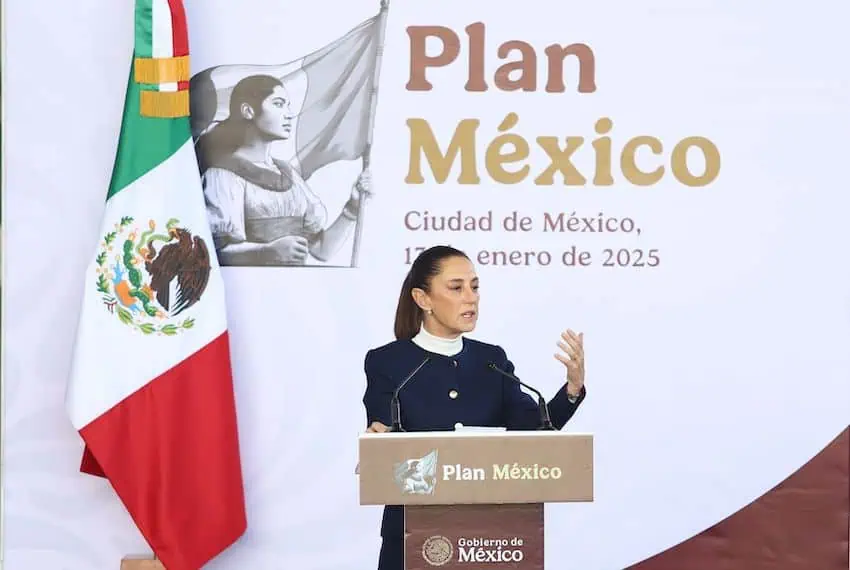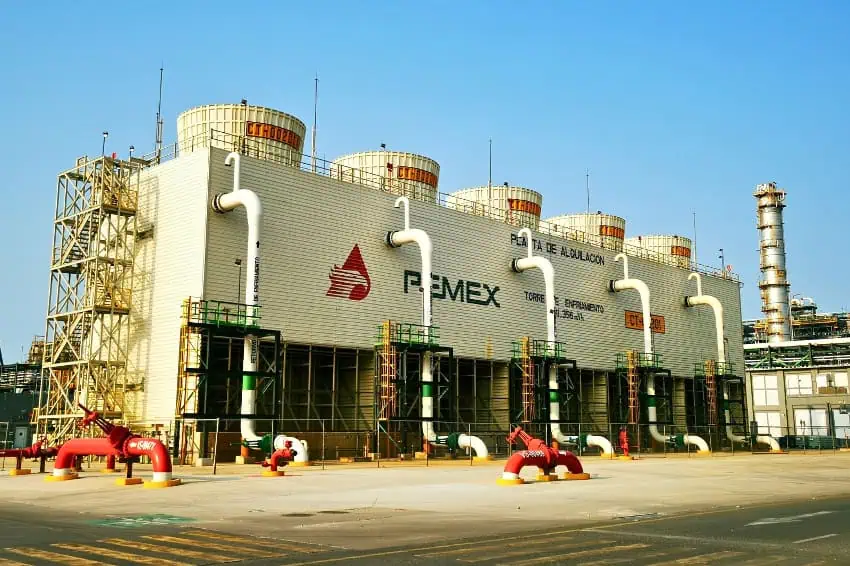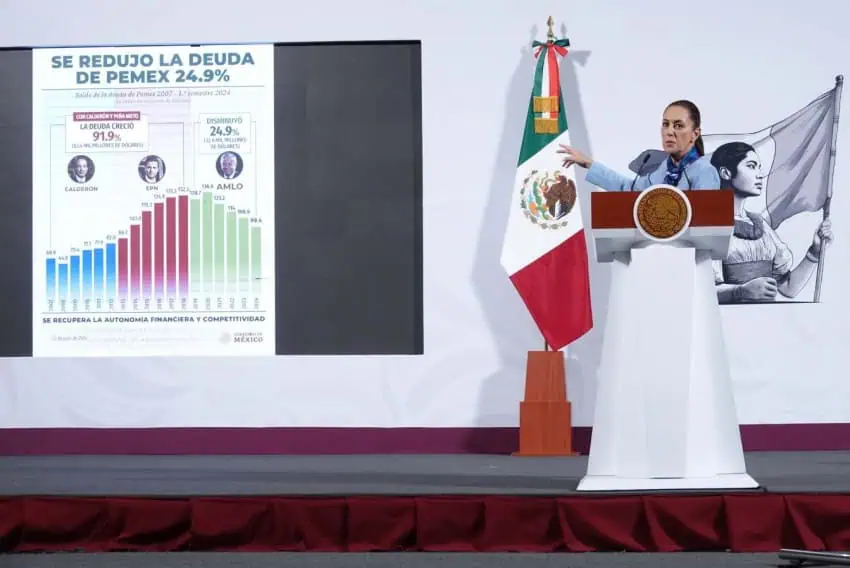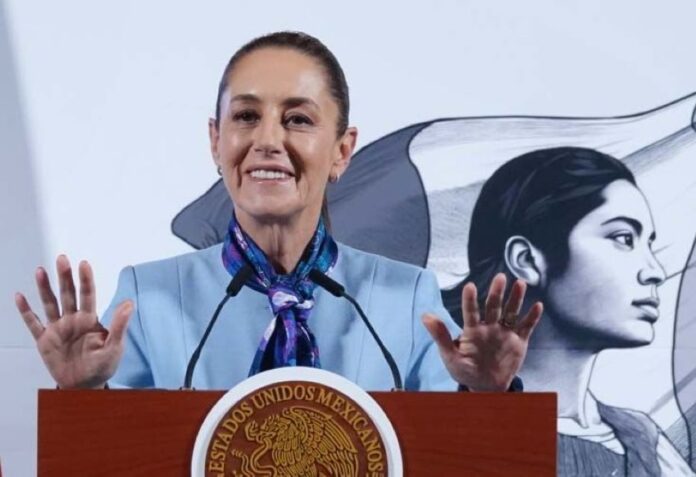After National Water Commission General Director Efraín Morales outlined 17 water infrastructure projects that are slated to be built in Mexico in the coming years, President Claudia Sheinbaum opened up her morning press conference to questions.
Reporters questioned the president about a range of issues, including the outlook for the Mexican economy and the health of Pemex, one of the world’s most indebted oil companies.

‘We work so there is investment’
Three days after President Donald Trump refused to rule out the possibility of a recession in the United States this year, a reporter asked Sheinbaum what steps her government is taking “to minimize any negative effect on our economy” in the event of an economic contraction north of the border.
“That’s the job of Plan México,” she responded, referring to her government’s ambitious economic initiative.
“For example, I meet every Monday with the finance minister to see how we’re going with revenue, with expenditure,” Sheinbaum continued.
“… And afterward I meet with the economy minister … and we look at the portfolio of investments [and consider] what incentives we have to give, what we have to do,” she said.
“… It’s not this idea that ‘the market will decide everything,’ but rather we work so there is investment [and] development, it’s seen in the macroeconomic indicators and the indicators on how the welfare programs are going,” Sheinbaum said.

“… The work that we do helps to reduce the impact [of a potential recession in the United States] and helps there to be greater growth and development,” she said.
‘Mexico’s economy is doing very well’
Sheinbaum expressed confidence that the Mexican economy won’t go into recession in the near term.
“We believe that we can get ahead … in any circumstances,” she said.
Sheinbaum acknowledged that the United States government could impose new tariffs on Mexican goods when it imposes reciprocal tariffs on its trading partners next month. (Steel and aluminum tariffs took effect today.)
However, she once again voiced optimism that Mexico will avoid additional duties given that it doesn’t impose tariffs on the vast majority of imports from the United States.
Although economic growth is forecast to slow significantly this year, the president declared that “Mexico’s economy is doing very well.”
Sheinbaum noted that Mexico has an “open line” with the International Monetary Fund (IMF) that it could use in adverse economic circumstances. The current Mexican government inherited public debt of more than US $850 billion from its predecessor, but the president said she didn’t believe her administration would need financial assistance from the IMF.
“At this time we don’t see it as an option because tax collection is going very well, incredibly well,” Sheinbaum said.
“… So we don’t believe it’s necessary; we’re doing well. But as a last resort, the [IMF] line is there if it is needed,” she said.

‘If that’s not a loss of energy sovereignty, what is?’
Sheinbaum took aim at previous governments — excluding that led by former president Andrés Manuel López Obrador — for putting Pemex into additional debt and overseeing a decline in the state oil company’s output.
“They put Pemex into debt, and it increasingly produced less oil and refined less gasoline and diesel,” she said.
Sheinbaum asserted that a large part of the company’s resources were lost to corruption in the years before López Obrador took office.
She displayed a graph that showed that Pemex’s debt increased from US $68.9 billion in 2007 during Felipe Calderón’s presidency to $132.3 billion in 2018, the last year of ex-president Enrique Peña Nieto’s six-year term. The graph showed that the state oil company’s debt was $99.4 billion in 2024, the final year of López Obrador’s presidency.
“The most astonishing thing is that in addition to the debt doubling [between 2007 and 2018] the production of oil fell and more gasoline was imported,” Sheinbaum said.

“If that’s not a loss of energy sovereignty, what is? Putting a public company into debt and producing less [oil] and importing [more] — that’s a loss of sovereignty,” she said.
“The change began with president López Obrador and we’re providing continuity,” said Sheinbaum, whose government is implementing an energy reform as it seeks to strengthen both Pemex and the state-owned Federal Electricity Commission.
AMLO pledged to reach self-sufficiency for gasoline during his presidency, but failed. It remains to be seen if Sheinbaum can achieve that objective before she leaves office in 2030.
By Mexico News Daily chief staff writer Peter Davies (peter.davies@mexiconewsdaily.com)
